“You are going the wrong way.”
I heard that more than once in a variety of ways in the two days I have spent in Fès, Morocco. The first was just after I arrived at the Palais Shéhérazade by taxi on Sunday. My riad (hostel) had sent me a map saying the Palais was as far as a taxi could go (the old medina here is off-limits to motorized vehicles, thank god). But it was only a one-minute walk from there to the riad, the instructions promised.
Unfortunately, my cellphone data had evaporated on the train midway between my starting point in Essaouira, a beach town on the west coast of Morocco, and my end point, 10 hours later, in the historic capital of Fès, in the mid-north. So I knew I was close, but it was twilight and the street names aren’t always clearly marked here, and, sans data, my Google Map app had become useless somewhere around Rabat.
Fortunately, there are always people willing to tell you where to go in Moroccan market towns. Usually after a stop at a cousin’s leather goods shop or a quick bite at the family snack bar. So it wasn’t long before someone noticed that the guy with a suitcase and a knapsack didn’t look like he knew where he was. “Where are you going?” asked a smartly dressed guy in his late 20s.
Riad Verus, I told him. “Ah, don’t worry, I know where that is, I will take you there.” Since I knew it was close, I figured there wasn’t much to lose. If he wanted money, I’d tip him 10 dirham (about $1.30) for the short walk, relieved that I didn’t get myself lost.
Only it wasn’t a short walk. As he rambled on about the mysteries of the medina (old town) and its thousands of tiny streets and alleys, we walked up and down slopes and through narrow streets for about 10 minutes until I was completely disoriented. “I thought it was close,” I said. “Yes, we are almost there. It is just down this street. You can see it on the left.” Whatever he was pointing to was about 50 metres up the street. “I can’t see it,” I said. “Can you bring me to the door?”
I thought it was suspicious that he’d brought me close, but seemed to be wary of going to the door. “It’s just there, you can’t miss it.” I kept walking towards where he was pointing, forcing him to accompany me as he finally brought up the subject of payment. I offered him a 10 dirham coin as I kept walking. “That’s not enough,” he said. I added another 5 dirham coin. “Don’t you have any bills? This is children’s money,” he said angrily.
That’s when the door to Riad Verus opened and an employee stuck his head out. My “guide” changed his tune quickly. “I was just showing your guest to the riad,” he said to the doorman, then he whispered to me that he’d accept the 15 dirham, then quickly turned and disappeared back up the alley.
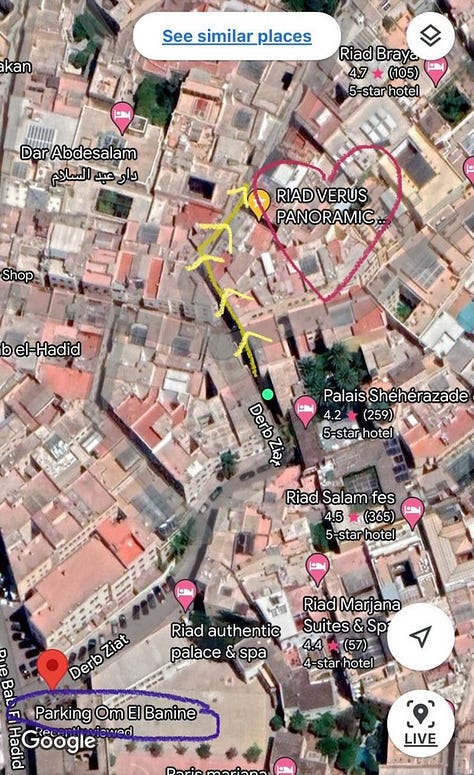
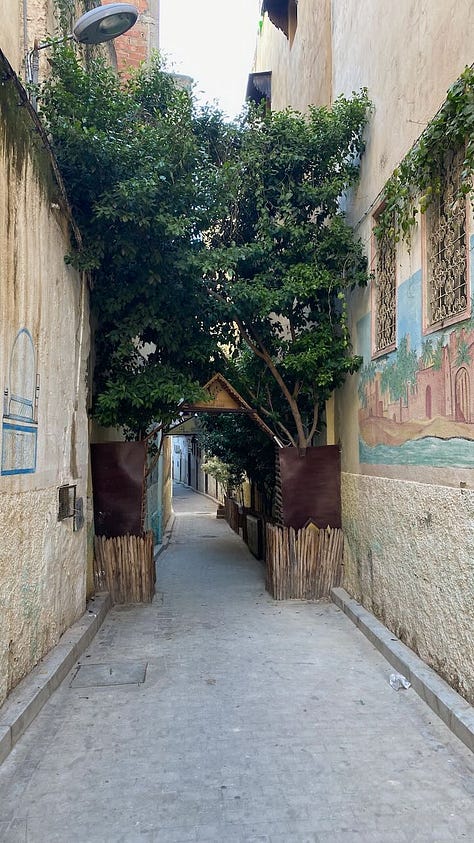

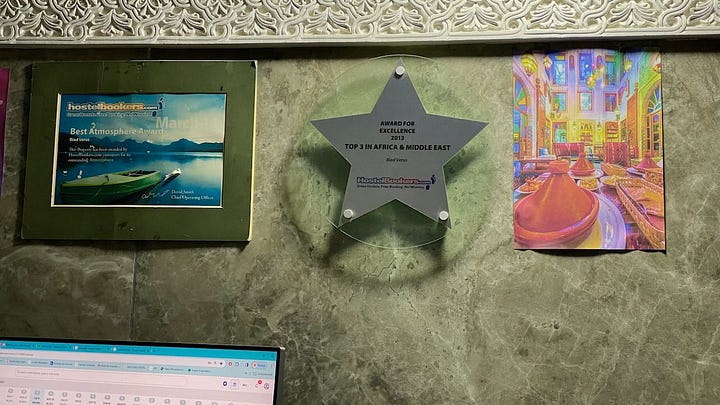
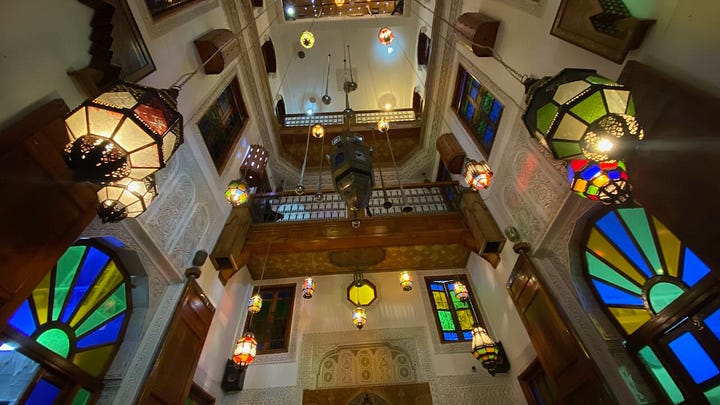
The next day, I walked out the riad door and confirmed pretty easily that he had taken me on a long, circuitous walk that should have taken no more than a minute. And that the riad had cameras that my guide knew about and, I assume, he was afraid would have incriminated him in trying to fleece one of its customers.
⚜ ⚜ ⚜
I was truly introduced to the medina the next day by Fatima, a guide who had been recommended to me by another guest at my hostel back in Essaouira. She explained the basic layout of the old town, including tricks for figuring out if you were heading deeper into the medina or back to home base near the blue gate.
In between basic history lessons and explanation of cultural and religious traditions of Fès, Fatima also introduced me to shops where skilled craftspeople were producing works of art from bronze or silk, no pressure to buy, just proud professionals showing off their head-earned skills. Once again, the mosques are a key attraction here, beautiful and well-preserved icons of a proud religious heritage, but off-limits to non-Muslims. It was such a contrast with secular France, where churches, too, are significant tourist attractions, but where visitors of every faith can gawk and take photos, sometimes even in the middle of the priest’s sermon.
After visiting the outside of one of the world’s first universities (again, inaccessible to non-Muslims), we stopped at a tiny tea shop, a literal climb up a hole in the wall to a cramped kitchen where the tea-maker blended a combination of six or seven fresh herbs to make a delicious brew. No sales here either. Fatima paid.
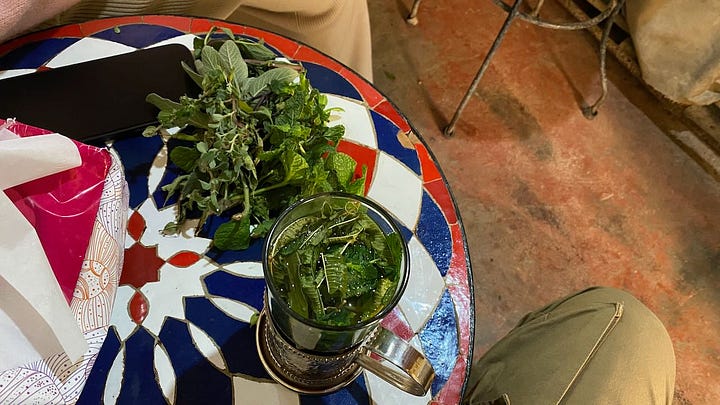
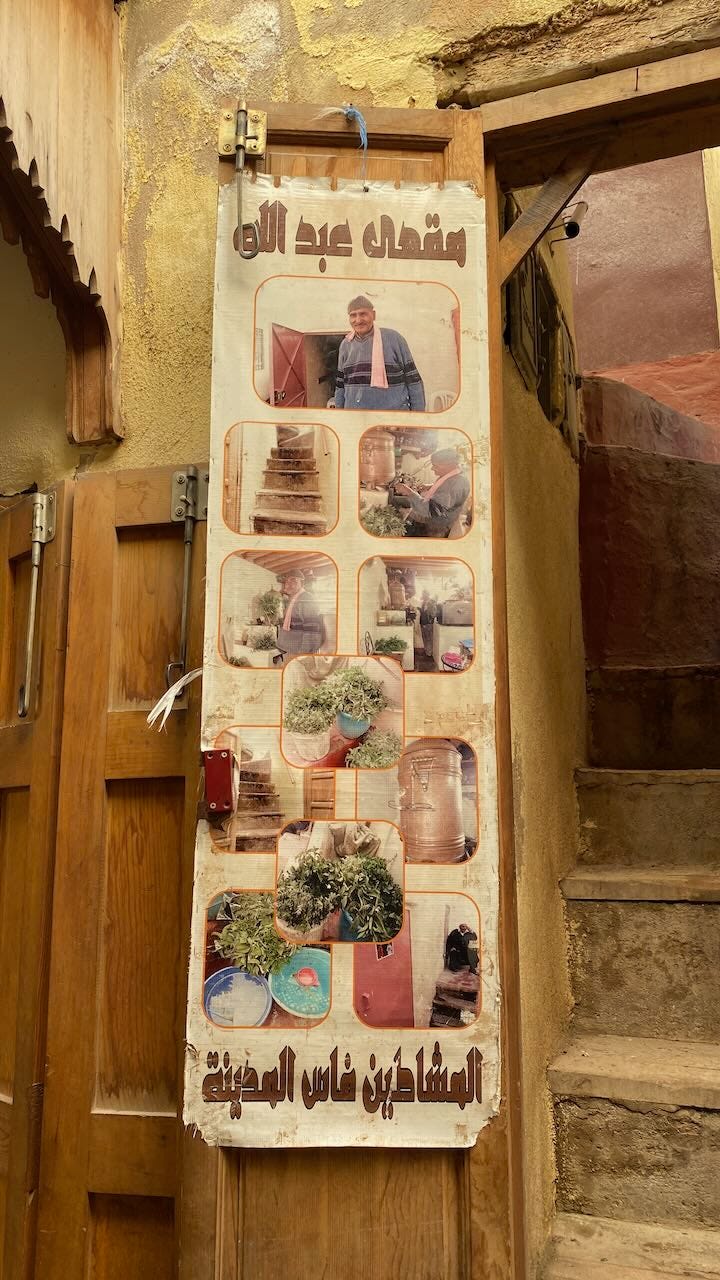
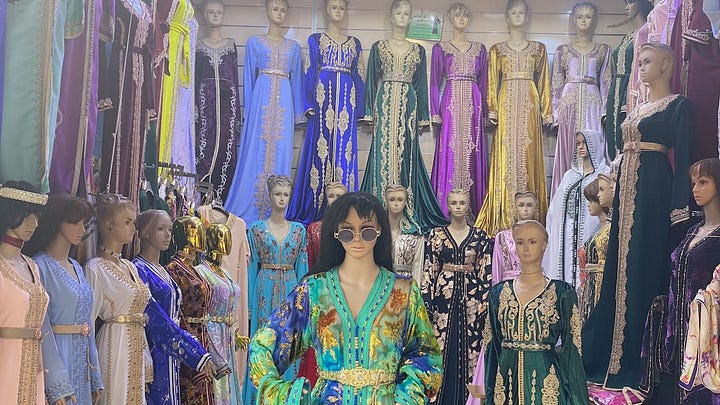
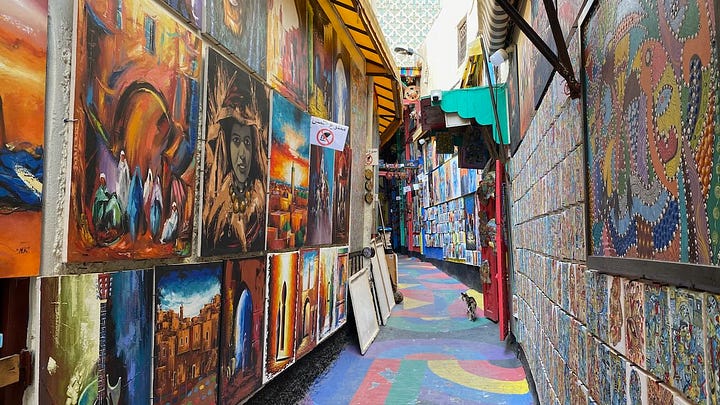
So when I explored the medina on my own the next day, armed with Fatima’s knowledge and fresh data on my iPhone, I felt confident as I worked my way towards the ancient walls of the oldest section of Fès. Until I couldn’t figure out how to climb to the top of the wall. Looking around again, I approached some kids playing soccer to ask how to get to the ramparts that promised an unobstructed view of the old walled city and the Marinid Tombs, an ancient cemetery overlooking the city’s first mosque.
I think the kids enjoy teasing tourists as much as they love soccer. That’s when Mohamned approached and offered to guide me up. Here we go again, I thought. As we walked up through the ancient graveyard, Mohamned explain that he was a lifelong resident of the Fes el-Bali neighbourhood and still lived beside the nearby Bab Guissa gate in his ancestral home. I asked about money, he insisted I could pay whatever was in my heart of the end of the tour. No commitment, no pressure.
He was very knowledgable and there was little doubt of his expertise about the neighbourhood, stopping at one point to chat with a woman with a young child who turned out to be his sister-in-law.
I gave him a generous tip at the end, appreciative of his company and casual confidence. He told me how much it touched him and that it had made a lean work day end on a very happy note. I like to think I did my bit to further bolster the International reputation of Canadian kindness, which comes up often here. I tell people it’s a stereotype. We have assholes too, we just don’t let them leave the country.
⚜ ⚜ ⚜
Having had my faith in the basic decency of humans restored once more, I headed back up through the medina to my riad, following clear Google map instructions.
“Hey, hey,” I heard a few times, “you are going the wrong way! It’s this way!”
I mostly ignored the comments, but when I stopped at one point to double-check which way to turn, one guy insisted I was going in the wrong direction. “You don’t even know where I’m going,” I pointed out. “There’s nothing that way,” he insisted, although the heavy foot traffic in that direction suggested there was, indeed, something “that way.”
“Where are you going?” he asked, conceding at last to my logic.
“To my riad.”
“The medina is full of riads,” he countered, as if that proved a point.
I pushed past him and managed to get a few more blocks before being tag-teamed by a 40-year-old and his son, who asked what riad I was looking for. I told them, and they insisted it was up and to the left, while Google was insisting it was on the right. “Google is no good here,” the father told me. “The signal does not get through. My son will show you how to get there.”
But Fatima’s teachings the day before suggested Google was probably right. I told the men about my previous bad experience and said, “sorry, but the liars and the con artists make you suspicious of even people of good intentions. You may be giving me good advice, but if you really want to look out for my best interests, then you should let me get lost on my own. What does it matter to you if I waste my time?”
They had no answer for that. I turned to walk the wrong way down familiar streets and got back to the hostel a few minutes later.
⚜ ⚜ ⚜
Life is full of decisions that take you the wrong way, at least for a while. But without them, you’d never have arrived at any of the good places life has taken you either.
Thanks for taking these twists and turns with me. I’m off to Nador in northern Morocco, where I will board a ferry that will take me across the Mediterranean in a two-day passage back to France. As I wrote last week, I’m curious to experience the crossing that so many migrants have made, driven by both hope and desperation to build a new life in a world that can sometimes be as cold and unforgiving as the seas that have taken so many of their lives. I know there’s no real comparison between migrants’ run-down, overloaded boats and the modern ship I’ll be taking, but that’s one harrowing experience I’ll gladly concede that, for me at least, is definitely the wrong way to go.
Here’s little photo gallery of some of my favourite moments in Essaouira, including a hike through an argan forest and some shots of the goats that famously climb the argan trees (tho in this case, they are just leaning on them).
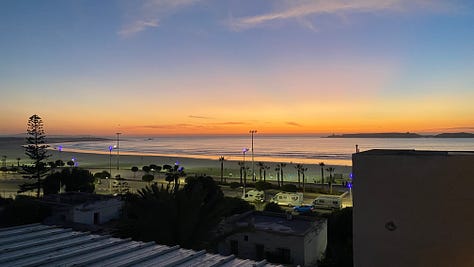
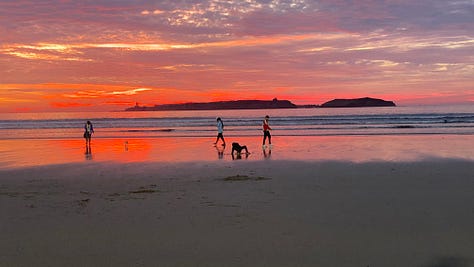

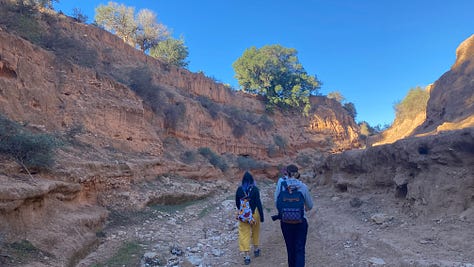
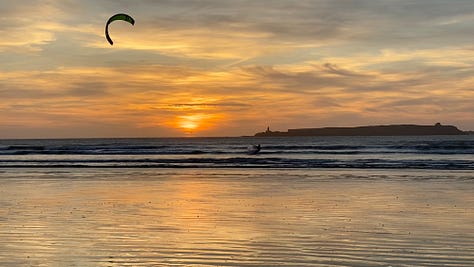
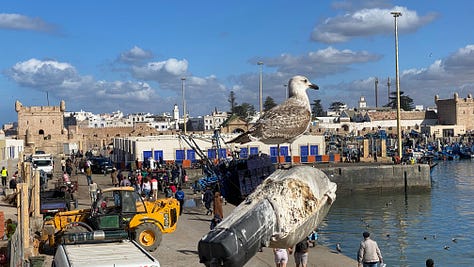
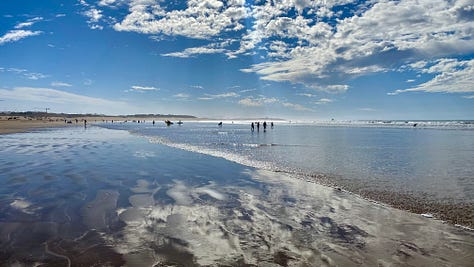
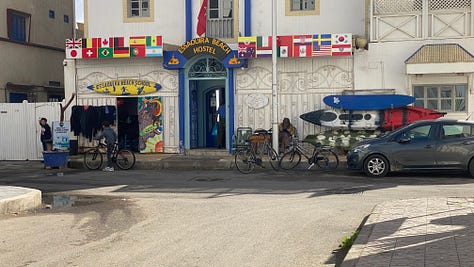
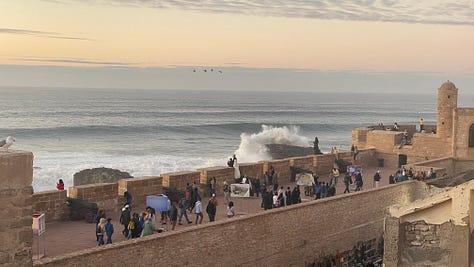


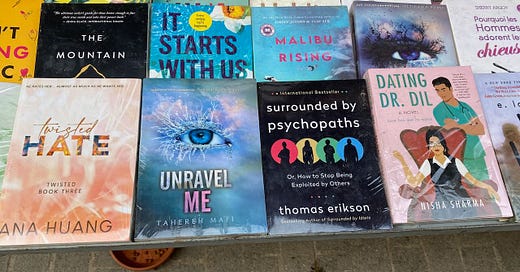



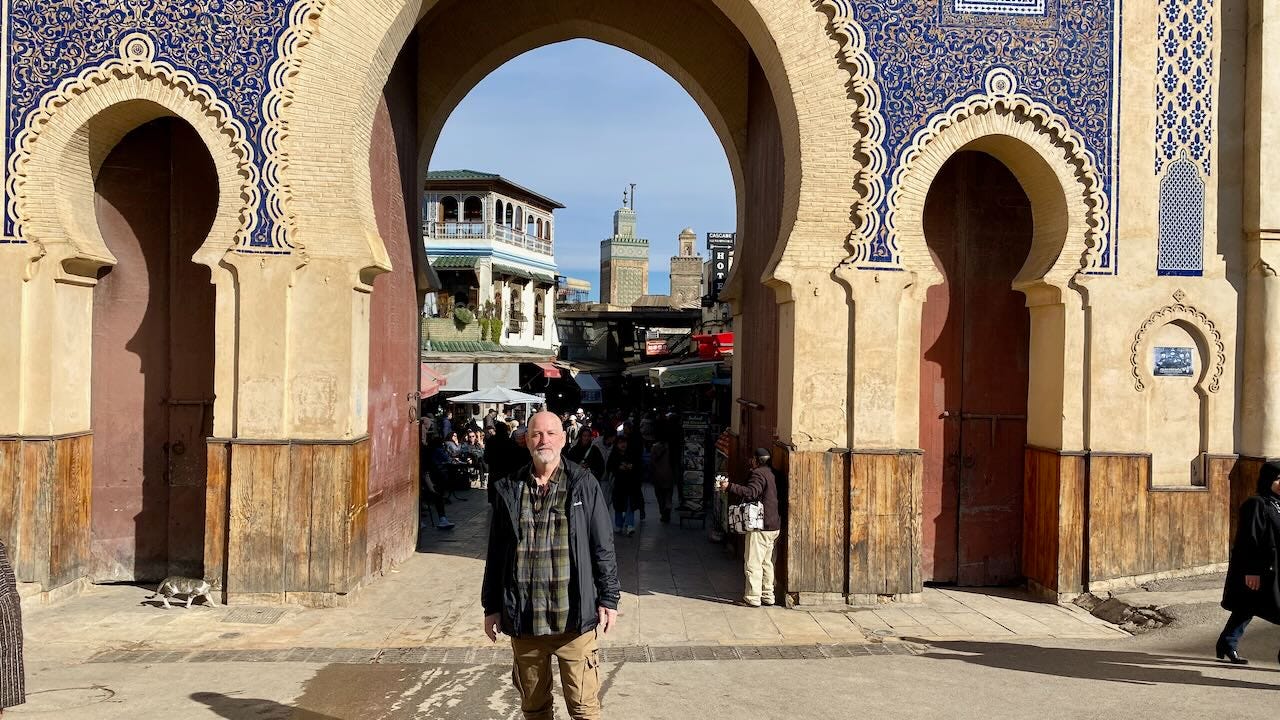
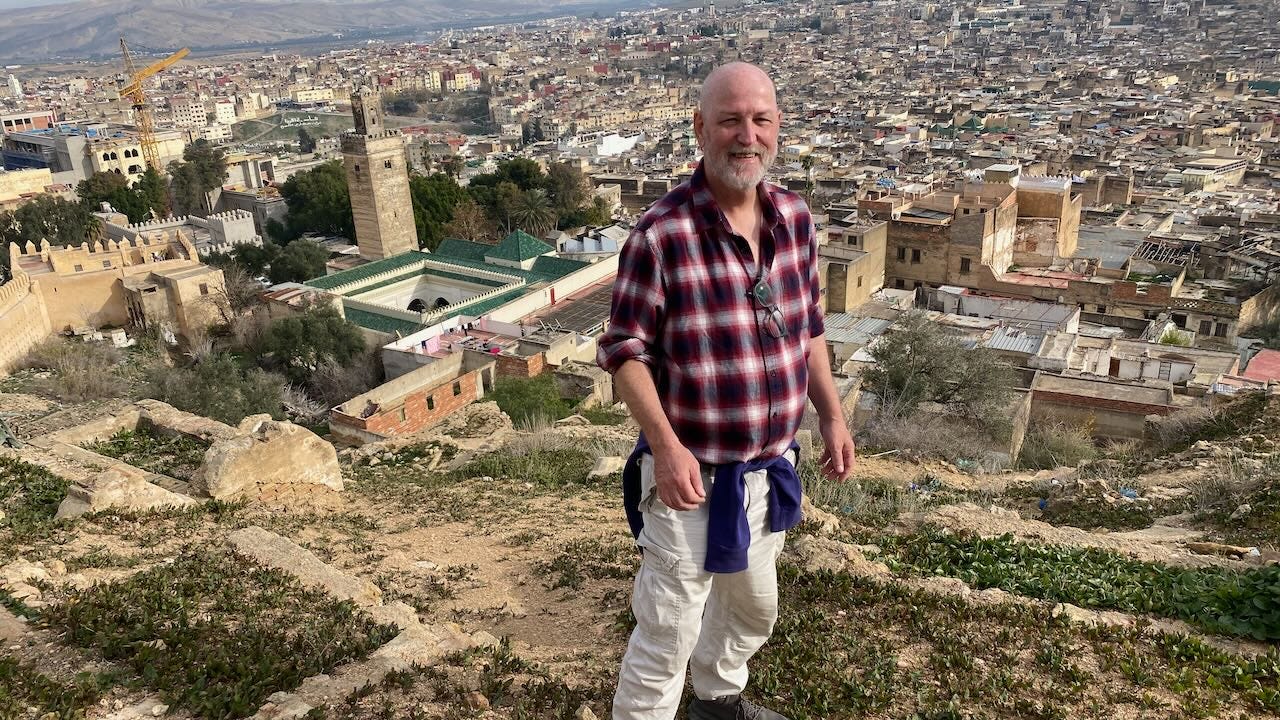
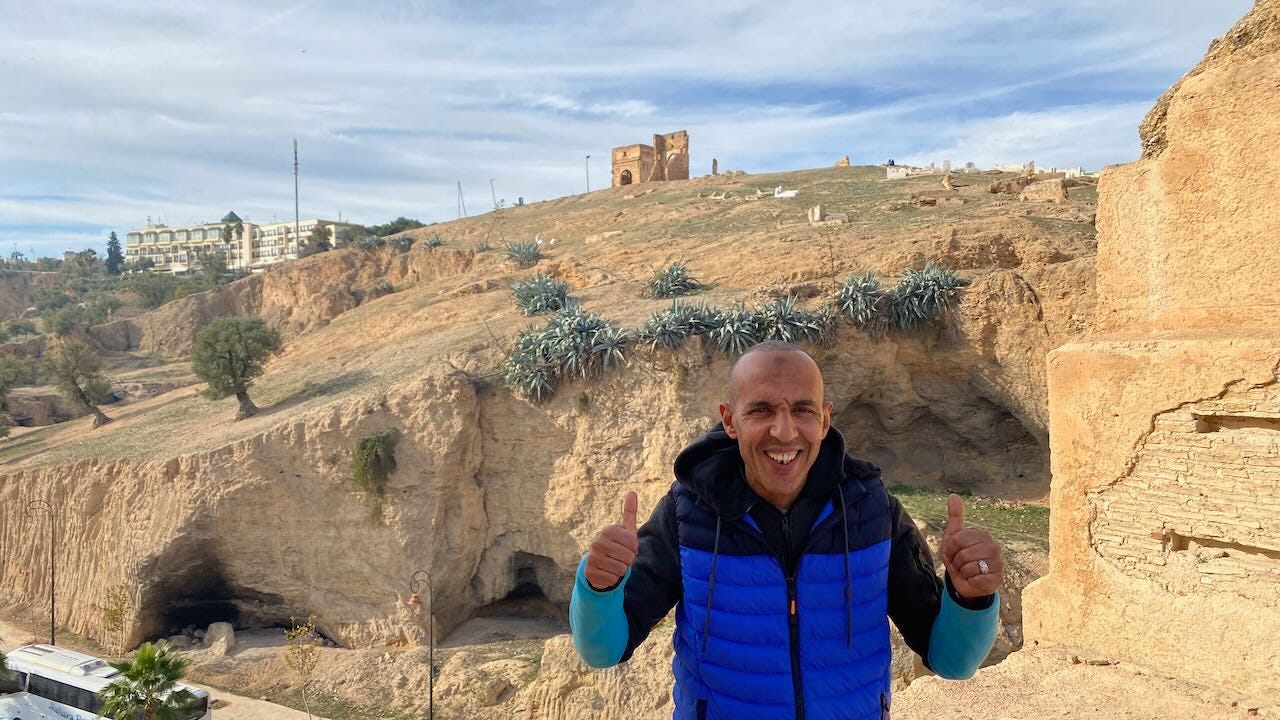
Your experience of Fes is fascinating. I've been there twice - the first time with B., when we were approached pretty constantly by various kinds of chancers, and the second time on my own, where my swarthy Mediterranean complexion seems to have won me some kind of anonymity. I don't recall being approached even once on that trip.
Very vivid description of the Medina of Fez, I had a bunch of trouble with people who were helpfull and ‘helpful’. Great to know its a universal experience.